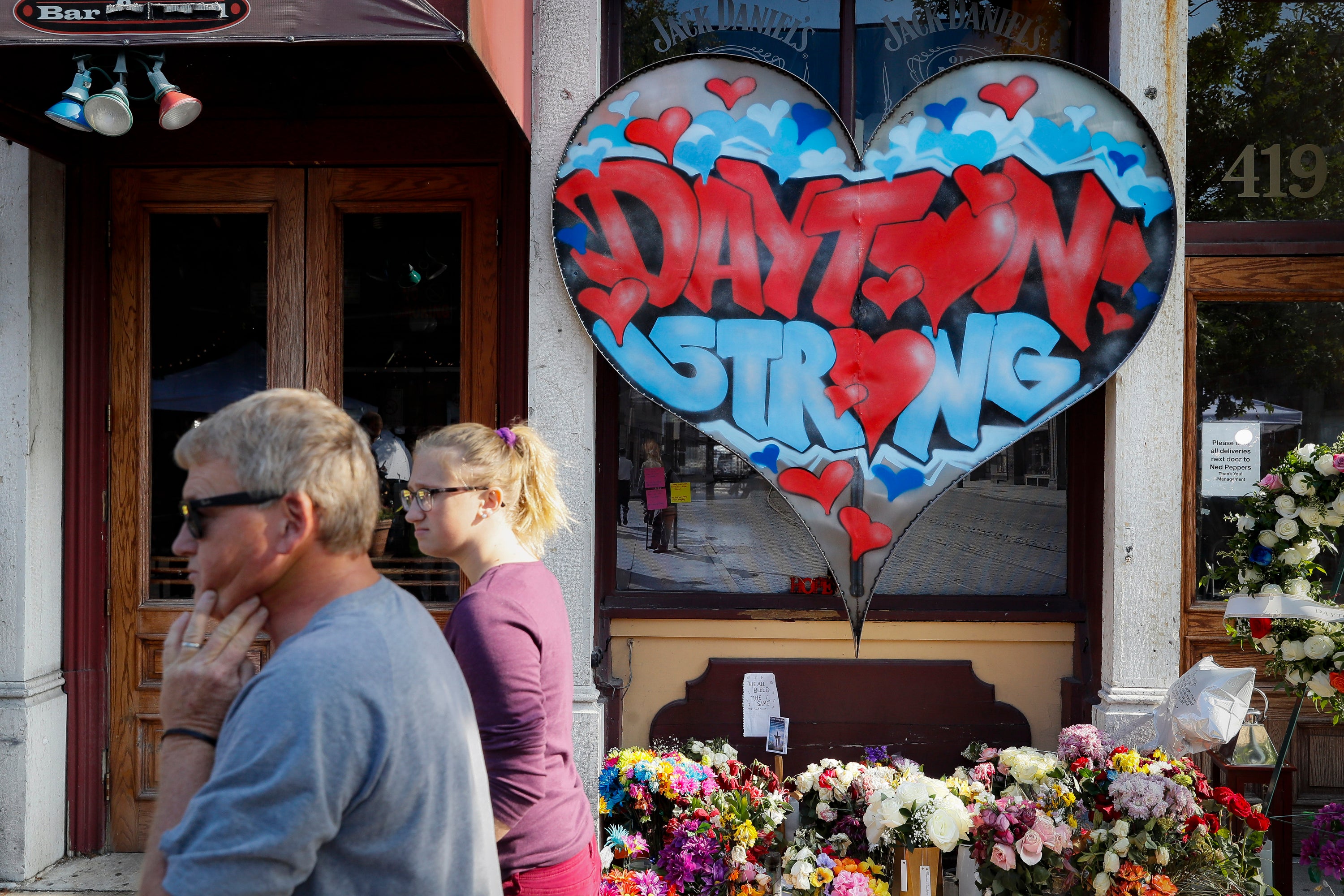Police find no evidence Dayton mass shooter targeted sister
Authorities who investigated a 2019 mass shooting that left nine dead in Dayton, Ohio, say they found no evidence that the gunman targeted the sister who was among the victims

Your support helps us to tell the story
From reproductive rights to climate change to Big Tech, The Independent is on the ground when the story is developing. Whether it's investigating the financials of Elon Musk's pro-Trump PAC or producing our latest documentary, 'The A Word', which shines a light on the American women fighting for reproductive rights, we know how important it is to parse out the facts from the messaging.
At such a critical moment in US history, we need reporters on the ground. Your donation allows us to keep sending journalists to speak to both sides of the story.
The Independent is trusted by Americans across the entire political spectrum. And unlike many other quality news outlets, we choose not to lock Americans out of our reporting and analysis with paywalls. We believe quality journalism should be available to everyone, paid for by those who can afford it.
Your support makes all the difference.The gunman who killed nine people in 2019 outside a crowded strip of nightclubs in Dayton apparently shot all his victims — including his younger sister — at random, police said in a report that stopped short of making a final conclusion.
The investigative report released by Dayton police says there is no evidence that Connor Betts targeted or singled out his 22-year-old sister, Megan who was among those killed.
“All of the victims appear to have been random,” wrote Detective David House in the report, released Friday.
But the FBI which announced the end of its investigation late last year, said this week that it had made no final conclusion on whether Betts intended to shoot his sister.
“No one knows for sure except the shooter, who is deceased,” FBI spokesperson Todd Lindgren said in an interview Monday.
Betts, 24, was killed by police half a minute after he opened fire in Dayton’s crowded Oregon District entertainment area. Armed with an AR-15-style rifle and an extended ammunition magazine, he killed nine people and wounded dozens more.
He had fantasized about mass shootings, serial killings and murder-suicide for at least a decade before carrying out the attack, the FBI said.
Betts arrived at the entertainment district that night with his sister and his best friend, Chace Beard. They spent about an hour inside a bar before Betts left and went to another nightclub by himself, police said.
Text messages released by police show that Betts asked the pair to come over to the other bar, but Beard responded that they were going to get tacos and stay only one more hour.
None of the messages gave any clue that Betts was about to carry out the attack.
Minutes later, Betts walked to his car, put on body armor and retrieved a gun from the trunk, according to video reviewed by police. He then came down an alley and started shooting.
His sister was hit while standing in line at a taco cart with Beard, who also was shot and injured.
“We were at the front of the line, I was literally watching them make my food when I heard gunshots," said Beard, who talked with police at the hospital.
He said he saw the masked shooter for a few seconds but did not recognize him.
Beard said that he didn't know of any problems between the siblings and that Betts “was really protective of her,” the police report said.
Dayton Police Chief Richard Biehl, who has since retired, said a week after the attack that there was a real question whether Betts could see who was on the other side when he began shooting.
One witness told police that Betts was shooting from the hip and not looking down the gun's sights. Another said he saw Betts at one point duck behind a trash can and then saw him appear to be aiming at people.
The man, who served in the Marine Corps, said he didn't think Betts was trained how to properly shoot a rifle, judging by how he was holding it.
The FBI, in a summary of its investigation released in November, said it uncovered evidence Betts had “looked into violent ideologies.”
A psychology instructor who had Betts in two of her classes at Sinclair Community College in Dayton told Dayton police that he was more disagreeable during her class in spring 2019, according to the police records released Friday.
Debbie Carter-Ford told investigators that Betts talked and wrote about how he did not allow laws to influence him and said he thought the government was spying on him. On the last day of classes in May, she said, he stormed out of class and said, “I don’t feel well.”